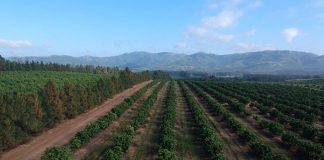This was according to Dr Piet Croucamp, sheep farmer and political analyst at the University of Johannesburg. “Political interests will have to be calibrated with economic realities,” he said. The minister of land reform appeared to be repositioning, probably because he knew that there would be a plan on the table early next year, Dr Theo de Jager, farmer and chairperson of Agri SA’s transformation committee, said.
“The 50:50 proposal has been discarded, but there is a strong possibility that land ceilings will be declared,” De Jager said.
“My feeling is that next year we will probably see some cooling off in the land reform debate, but it may be countered by rising temperatures in the AgriBEE debate,” he said.
Amendments by the Department of Trade and Industry to broad-based black economic empowerment requirements could make life more difficult for farmers, with a potential for further conflict, De Jager said. The new black economic empowerment scoring system reduced the number of points a farmer could earn from soft issues such as farm schools, feeding schemes, improved work and living conditions, and weighted land ownership and management more heavily.
There was a need to speed up land reform, and government would push for transformation in land relationships so that benefits were more equitably shared, Mike Mlengana, Afasa president, said. Afasa had not accepted the so-called 50:50 proposal, but had given its approval to the land cap that would apply to unproductive land. Farmers using their land productively should have no need for concern, Mlengana said.
Organised agriculture had bought into the ideals of land reform, but the implementation process was contested, Croucamp said. “To make land reform work, you have to empower new farmers by making them qualified participants in the market economy in the first place,” he said.
This was a challenge for successful, commercial agriculture, because the state was in no position to carry out such a programme. “It is time for the private sector to take on the responsibilities of empowerment, where the state is too weak to do so, in their own interest,” Croucamp said.











